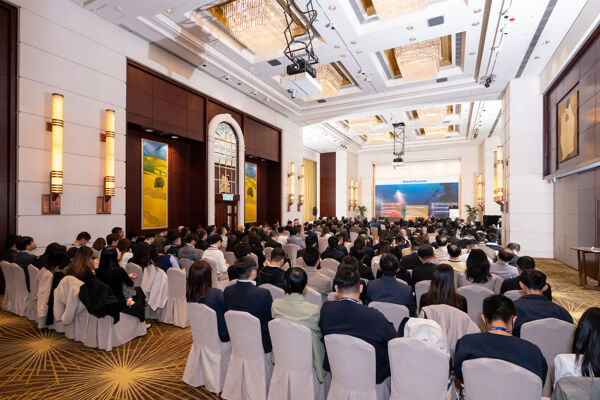
Key points
- NEC contracts contain many change mechanisms, some of which are stand-alone procedures while others align with the compensation event procedure.
- This article focuses on contract procedures that change the contracted ‘base requirements’, including client instructions and supplier proposals.
- The article concludes with a review of option X27 of the FMC and FMS on project orders, which is the longest X clause in NEC.
When discussing ‘change’ in the context of NEC contracts, most NEC users would immediately think of the compensation event procedure. This is recognised as both a pioneering and fundamentally important feature which effectively promotes the NEC philosophy of ‘stimulus to good management’.
There are, however, many other change mechanisms within NEC contracts, some of which are stand-alone procedures while others align with the compensation event procedure.
Client changes to the scope
Most of the NEC forms provide the right for an instruction to be given that changes the scope, with this right generally included at either clause 14.2 for the NEC4 ‘short’ forms or clause 14.3 for the NEC4 ‘long’ forms. In the NEC4 Alliance Contract (ALC) it is at clause 21.7.
Notwithstanding any stated exceptions, such an instruction would constitute a compensation event generally at clause 60.1 (1), although for the ALC contract this would only be the case where there is a corresponding change to the client requirements.
Supplier proposals to change the scope
The supplier may propose a change to the client-provided scope, where the consequence is a reduction in the total amount to be paid, and this is generally found at clause 16. Where a proposal is accepted and a corresponding instruction to change the scope is given, the matter is a compensation event (except the NEC4 Design Build and Operate Contract (DBOC), which expressly states otherwise).
There are specific provisions within the compensation event procedure to determine what the effect is on the prices, with the procedure detail being specific to the NEC form of contract and the main option chosen. The stated outcomes include the application of a ‘value engineering percentage’ or an ‘efficiency percentage’, or simply no reduction to the prices.
Client task orders
A package of work may be instructed via a task order which relates to work that has a level of complexity, coordination and risk which means that an instructed change to the scope would not be sufficient to deal with the associated contract issues.
The procedure is particular to the NEC4 Term Service Contract (TSC) and associated forms, with corresponding process requirements included in the core conditions of contract. These relate to a task order programme, task completion date and provisions within the compensation event procedure to address task orders.
Client service orders
Work can be called off using service orders, which are specific to the NEC4 Facilities Management Contract (FMC) and associated forms. Work in relation to a service order must be identified in the service order requirements, which forms part of the scope. The contract price list includes rates and prices which relate to the work associated with the service order requirements, so that the process of ordering and pricing any such work is straightforward.
Supplier proposals to reduce whole-life cost
Under option X21 a supplier can propose that the scope is changed to reduce the whole-life cost of operating and maintaining an asset or affected property.
A comprehensive quotation is associated with this procedure that details the expected effects of the proposal. Where a quotation is accepted, numerous changes are made to key contract information, although a corresponding change to the scope is expressly stated not to be a compensation event.
Client adding a scheme
Under option X26 in the ALC form, the client can propose adding a ‘scheme’ to the works. The matter is considered by the alliance board, which decides whether to accept the proposal.
When a proposed scheme is added to the works, corresponding changes are made to contract data and other contract information. Some of these changes would not be permitted under other forms of NEC contract, although the ALC operates on a contrasting basis and arrangement, which is why this option only applies to it.
Supplier proposals to reduce climate impact
Similar to a whole-life cost proposal, under option X29 the supplier can propose that the scope is changed to reduce the impact of the works, service, affected property or asset on climate change.
A comprehensive quotation is associated with this procedure that details the expected effects of the proposal. Where a quotation is accepted, numerous changes are made to key contract information, although a corresponding change to the scope is expressly stated not to be a compensation event.
Client project orders
Similar to the task order process, option X27 on project orders in the FMC and NEC4 Facilities Management Subcontract (FMS) is the longest X option within the NEC suite of contracts. This is largely because it adds corresponding contract procedures that are necessary to address particular issues associated with an instructed project. A review of the main features of X27 are detailed below.
Defined terms
Clause X27.1 adds four new defined terms, which correspond with those found at clauses 11.1 (18) to (21) of the TSC form. They are ‘Project’, ‘Project Completion’, ‘Project Completion Date’ and ‘Project Order’.
Project orders
Clauses X27.2 to X27.10 comprise details of the procedure that facilitates the instruction of a project order. It is almost identical to that in relation to a task order under the TSC, except that a project order may also include details of a bonus for early completion.
The project order procedure is initiated by an instruction to submit a quotation for a project, with clause X27.2 providing the authority to do this. Figure 1 provides an overview of the procedure.
Unlike the compensation event procedure, there are no ‘reminder’ provisions for when an action is not completed in the time stated. Although the work in relation to a project order is added to the scope, it is also expressly stated that a project is not a compensation event.
Time issues
Clause X27.11 importantly states that work included in a project is not to commence until a project order has been issued. This means that the cost of any associated work would not be included in the price for service provided to date where a corresponding project order is not issued.
Project completion is an important date as early completion may correspond with a bonus payment and late completion may incur delay damages. Where project completion extends beyond the service period, then this is extended, although stated restrictions apply during this ‘extended period’.
Project order programme
Unlike many other NEC forms, time does not require the same critical focus under the FMC as evidenced by the compensation event procedure that does not provide for an assessment of time.
A project order programme is therefore required to administer the associated contract procedures in relation to time, with clauses X27.13 to X27.17 providing for the submission, acceptance and revision of a project order programme. A corresponding allowance should be included in a project order quotation for these tasks.
Access
Clause X27.18 provides that there is a right of access, to the affected property, as shown on the latest accepted project order programme. Where the right of access is not provided, then this is a compensation event.
Compensation events
Clauses X27.19 to X27.27 contain additional compensation event provisions in relation to a project, which essentially provide for the assessment of time. To ensure that the additional compensation events are appropriately administered, such matters should be included on a project order programme.
Issues to consider
Where option X27 is selected for use in an FMC or FMS, it is important to fully understand the associated responsibilities. Service providers should not commence work in relation to a project until a project order has been issued.
FMC and FMS users should also ensure that the effects on the existing services are fully considered within a quotation for a project order. Furthermore, they should include an allowance within a project order quotation for the costs associated with the project order programme, which is required in addition to the plan. Finally, they should ensure that matters relating to the X27 compensation events are included on a project order programme.





